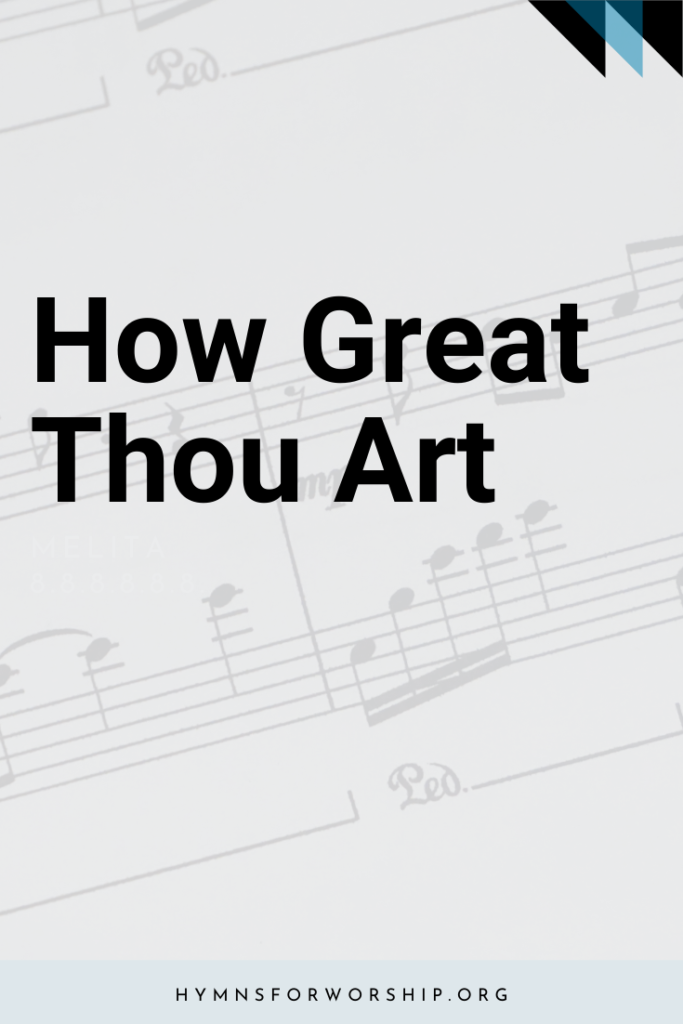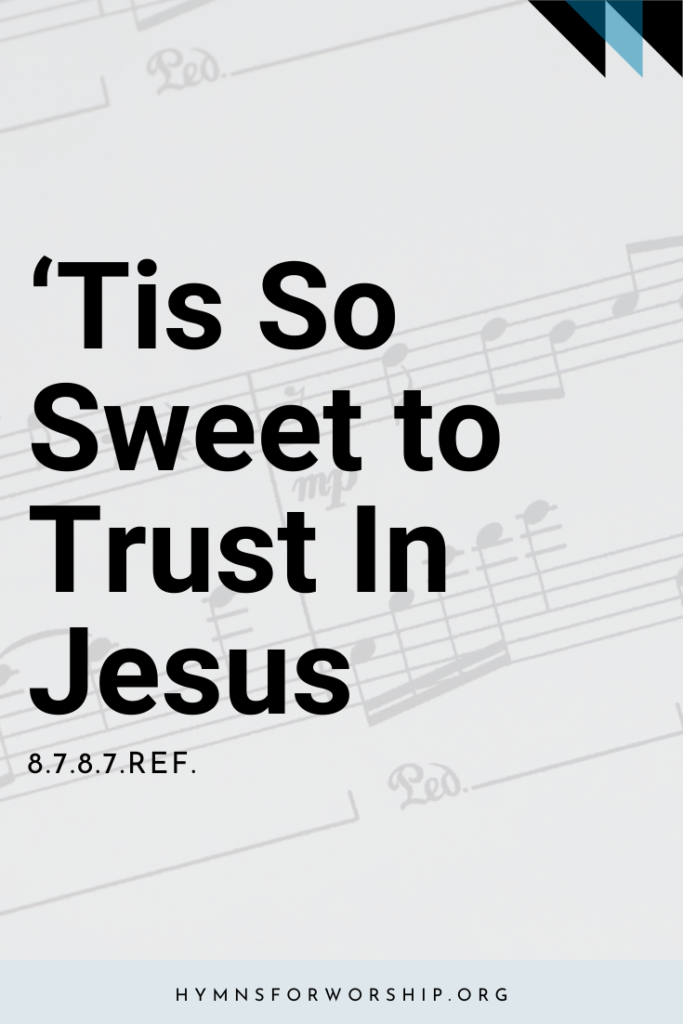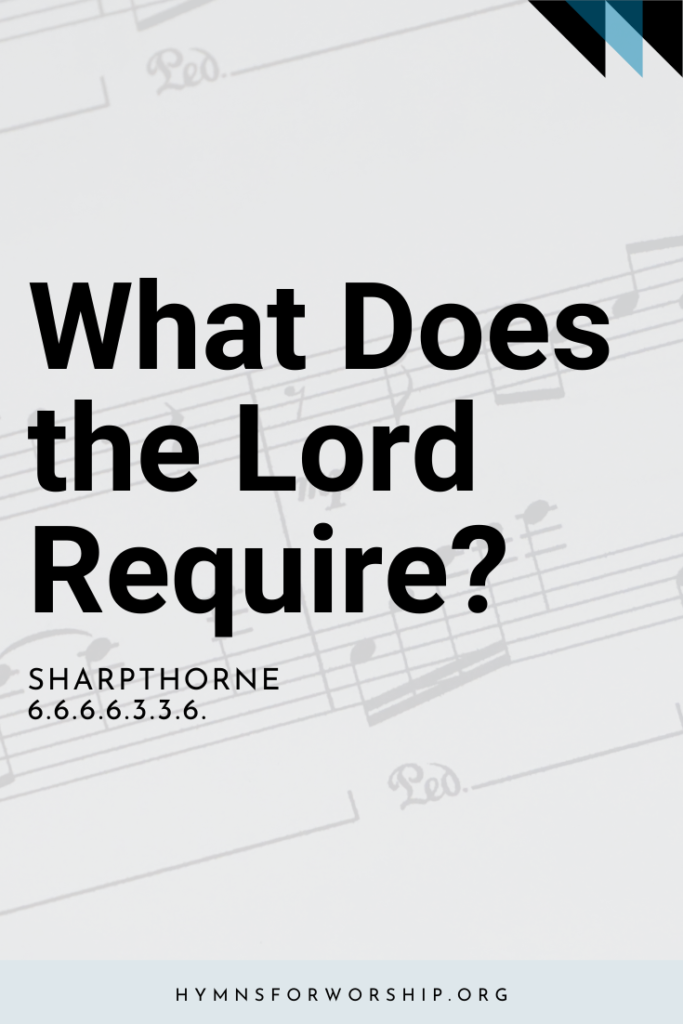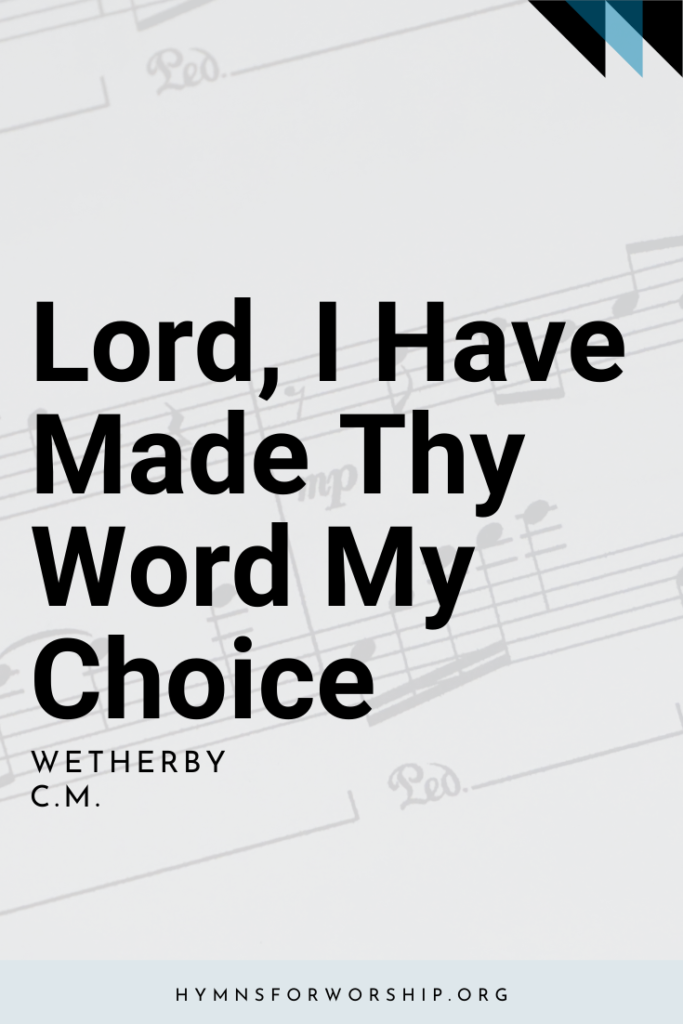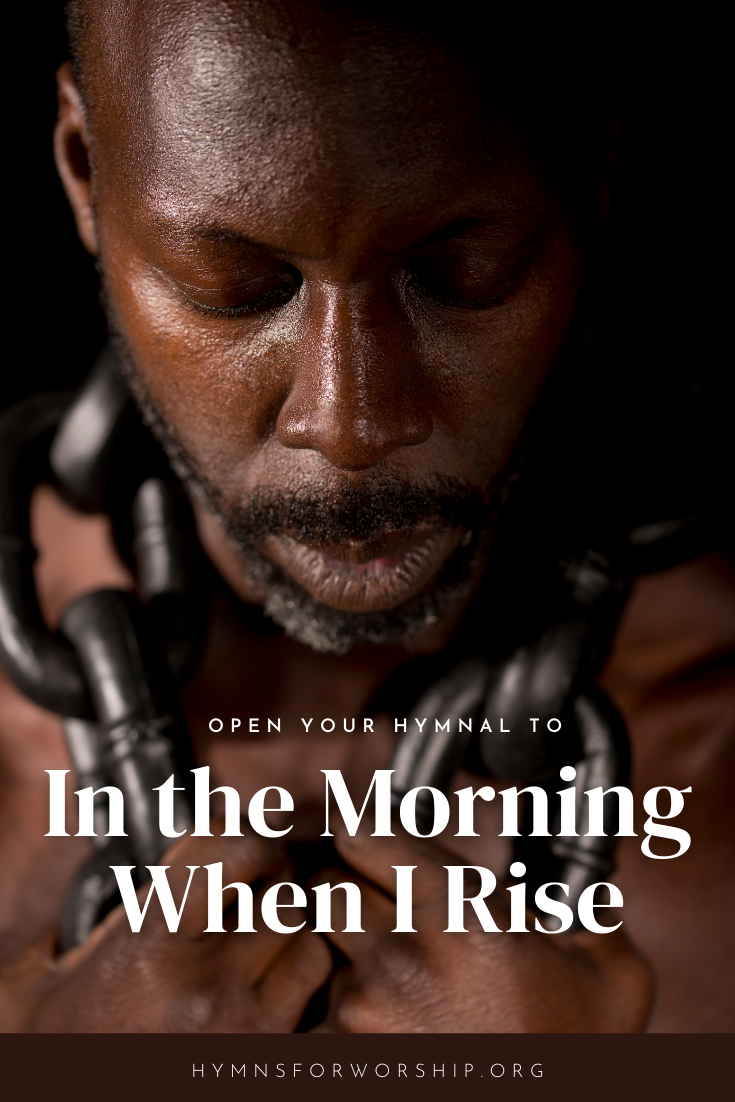
This song is very simple in it’s lyrics and arrangement, and that is what makes it so beautiful. Add the history of where the song came from, and it becomes more beautiful. Singing a simple song by those who were horribly oppressed is a great reminder of our own slavery to sin, and how the Lord is the only thing that could ever save and satisfy us —not our possessions, status, relationships, residence, or anything else.
Simply put, we want to remember Jesus as our only satisfaction in the morning, in a midnight cry, in our work, and even in death. Give us Jesus!
Black or White? Origins of Give Me Jesus
The original title commonly used for this hymn are actually the first few words of the initial stanza — ‘In the morning when I rise.’ According to Odum and Johnson (1925), many slave songs contained the metaphor of ‘morning’ and that as a rule, ‘morning signified to the Negro the time for going to heaven and for the resurrection.’ Slave Songs of the United States (New York, 1867) a post-Civil war collection presents two evidences that proves the morning theme to be correct — 2 songs that mention morning that refers to the resurrection morning.
TELL MY JESUS ‘MORNING’
In de mornin’ when I rise
Tell Jesus huddy, oh;
I wash my hands in de mornin’ glory
Tell my Jesus buddy, oh.
EARLY IN THE MORNING
I meet little Rosa early in de mornin’,
An’ I ax her, how you do my darter?
O Jerusalem, early in de mornin’
Walk ’em easy round de heaven…
Till all living may join dat band.
I meet my mudder (stanza 2)
I meet my rudder Robert (stanza 3)
I meet titta-isa (stanza 4) (‘sister Louisa’)
Needless to say, ‘Give Me Jesus,’ including other songs, was rejected by the editors of the Slave Songs, because they felt it was a ‘fake’ spiritual.
‘We have rejected as spurious “Give me Jesus”, “Climb Jacob’s Ladder”, (both sung at Port Royal), and “I’ll take the wings of the morning”, which we find in Methodist hymn-books’ (p. vi).
This basically indicates that the songs sounded too similar with ‘white hymns’ and that while it involves the spirit and experiences of enslaved Africans, the style of the hymn was like that found in many white American hymn books. Indeed it was published in The American Vocalist, a white Methodist songbook that was popularly sold in the mid 1800s.

The tenor section also bears a resemblance to the melodic shape of the spiritual as it is now sung.
The original full text is as follows:
When I’m happy hear me sing,
When I’m happy hear me sing,
When I’m happy hear me sing,
Give me Jesus.
Refrain 1:
Give me Jesus, give me Jesus.
You may have all the world,
Give me Jesus.
When in sorrow hear me pray (3x)
Give me Jesus.
When I’m dying hear me cry (3x)
Give me Jesus.
When I’m rising hear me about (3x)
Give me Jesus.
When in heaven we will sing (3x)
Give me Jesus
Refrain 2:
Blessed Jesus, blessed Jesus.
By thy grace we are saved, blessed Jesus.
Learn this hymn now
Check out lyrics, recommended arrangements, piano accompaniment for congregational use, and many more!
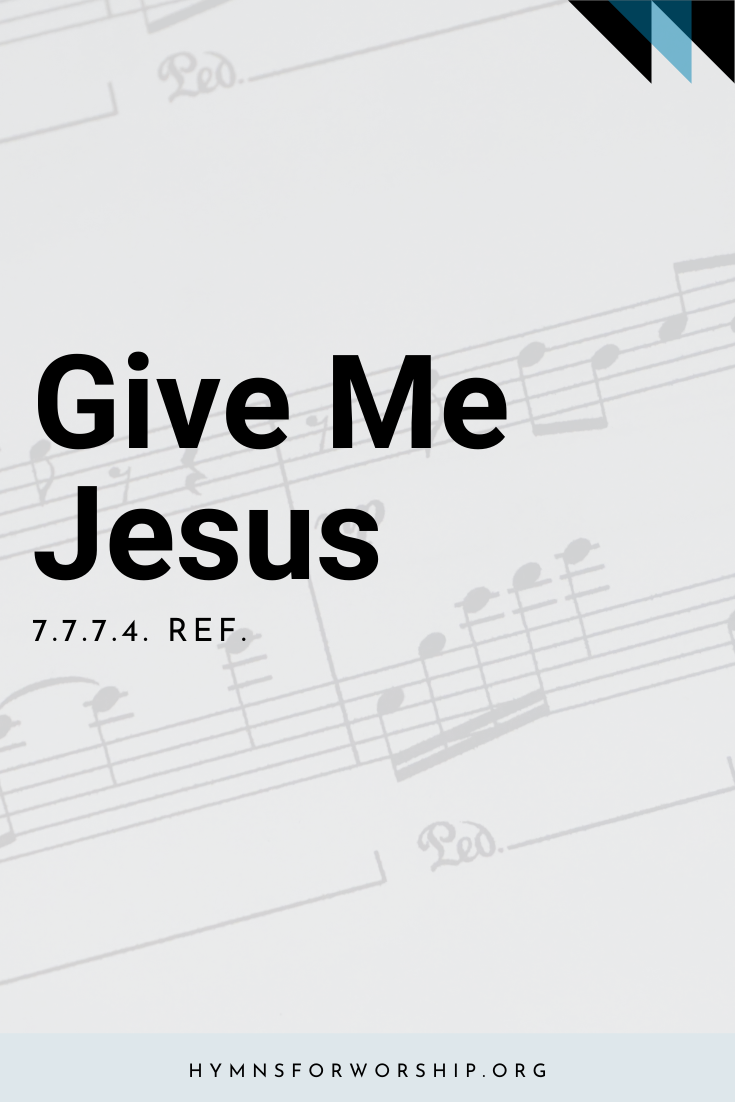
Road to Popularity
Thanks to the Fisk Jubilee Singers, a choral group of students from Fisk University, these wonderful spirituals (whether it had a black or white origin) such as Give Me Jesus was brought to the wider public scene. Their early repertoire consisted mainly of patriotic songs, hymns and sentimental songs of the day. With Fisk University facing insolvency, the university’s treasurer, George White (who is actually white), organized a concert tour to raise money, awareness and sympathy for the school. Their concerts however did not attract alot of interest. And so in desperation, White experimented by adding spirituals to their repertoire. Towards the end of their 3-month tour, their repertoire was mainly dominated by spirituals.
Graham writes, “They were responsible for popularizing spirituals in mainstream white society and for codifying a performance style and canon whose influence is still evident in the 21st century.”
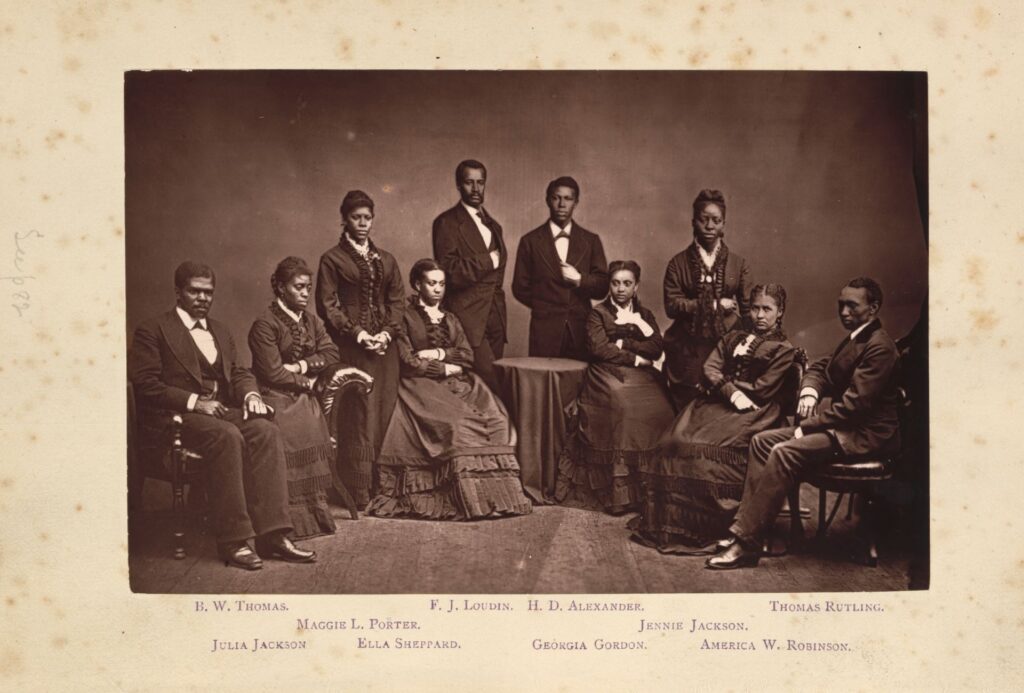
However, it was with much reluctance that they did so. One member of the choir, Ella Sheppard recalled, “The slave songs were never used by us then in public. They were associated with slavery and the dark past, and represented the things to be forgotten. Then, too, they were sacred to our parents, who used them in their religious worship.” (Moore, 1911, p. 43)
You see before the Civil War, black spiritual songs were only overheard by the whites — at camp meetings (when blacks would sing their own songs after hours), on plantations, through the windows of black churches, or at work. In fact, the whites heard it as ‘noise’ (Cruz 1999) because it was a mix of heterophony, slides, polyrhythms, and bent pitches. Several arranged spirituals were published as the blacks increasingly had more contact with journalists, soldiers, and other people who would attempt to notate their songs. But the mainstream public was indifferent.
Hence, the students’ reluctance to perform it was understandable. But through persuasion, they sang it privately for White, and through coercion, they sang them in concert for a public audience. The Fisk Jubilee Singers allowed the audience a way to hear spirituals in a carefully balanced way. What was interpreted as barbaric noise before the war was then heard as moving, and thrilling music in the postwar context.
JBT Marsh, the historian of the Fisk Jubilee Singers, records the following stanza with the now familiar refrain:
O, when I come to die…
In the morning when I rise…
Dark midnight was my cry…
I heard the mourners say…
(Marsh, 1880, p. 140)
The Theology Behind ‘Give Me Jesus’
Given the interesting black and white beginnings of the hymn, many writers also claim that while it was a northern Millenialist text it did not differ much from the songs that originated in the South. David Deacon examined this hymn among many others and concluded in his 1991 master thesis that:
‘the dominant theme, that of the journey, with its sub-themes of conversion (starting the journey), exile and world-rejection, and hopeful arrival in heaven, belonged to Southern as well as Northern plainfolk traditions;’
But one theme that echoes over and over for me is the refrain. It reminds me of Matthew 16:26, in the words of Jesus who said, “What is a man profited, if he shall gain the whole world, and lose his own soul?” This theme is relevant, especially more so in today’s society where it is ingrained in our culture to embrace materialism, position, and attention.
“What is a man profited, if he shall gain the whole world, and lose his own soul?”
In Heavenly Places, Ellen White wrote,
Christ sought to adjust the claims of heaven and earth…. He saw that men are in danger of cherishing an inordinate love for the world. The love of God is supplanted by a love for the world. Nothing but the power of the omnipotent God can dislodge this love. The things which are earthly and temporal lead men away from God, although the advantages to be gained are but an atom in comparison with eternal realities…. Turning away from heavenly attractions, from imperishable wealth, from peace, from nobility of soul, man pours out his affections on unworthy, unsatisfying things; and by constantly beholding this world, he becomes conformed to it. His mind, capable of elevation and privileged to grasp the eternal blessedness of the saints, turns away from an eternity of greatness and allows its powers to be chained like a slave to an atom of a world. It is humiliated and dwarfed by allegiance to worldly things.
May this hymn ever remind us that nothing in this world can ever replace Jesus.
References
SANDRA JEAN GRAHAM. “Fisk Jubilee Singers.” The Canterbury Dictionary of Hymnology. Canterbury Press. Web. 23 Jul. 2021.http://www.hymnology.co.uk/f/fisk-jubilee-singers.
CMH. “Give me Jesus (In the morning when I rise).” The Canterbury Dictionary of Hymnology. Canterbury Press. Web. 23 Jul. 2021.http://www.hymnology.co.uk/g/give-me-jesus-(in-the-morning-when-i-rise)

